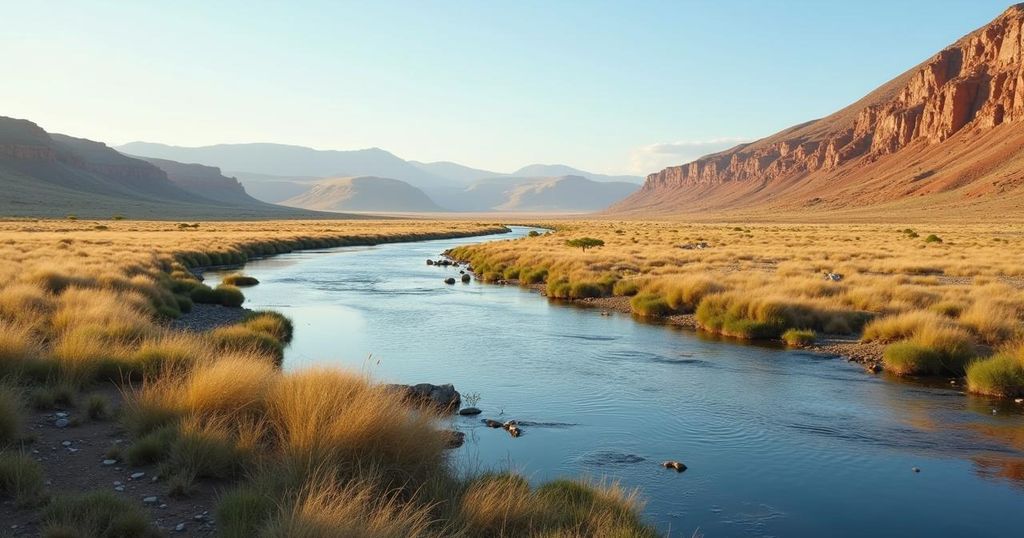Negotiations Between South Africa and Namibia Over Orange River Dispute
South Africa and Namibia are in talks to settle a disagreement regarding the Orange River’s boundary, initiated by a colonial-era treaty that South Africa upholds while Namibia seeks to redefine the boundary. The negotiations are marked by a commitment to collaboration amidst shared water scarcity issues exacerbated by climate change. The countries expressed optimism about resolving the matter amicably, reflecting an effort to manage water resources effectively both nations require.
South Africa and Namibia are engaging in discussions to address a longstanding disagreement concerning the rights to the Orange River, which serves as a vital water source and delineates the border between the two nations. A treaty established in 1890, during the colonial period, stipulates that the river’s northern bank represents the border, thereby attributing jurisdiction to South Africa. However, Namibia advocates for a redelineation that situates the boundary at the river’s midsection. Both countries face water scarcity issues intensified by climate change. After two days of negotiations, officials from both nations expressed their commitment to maintaining a collaborative approach, informed by principles of good neighborliness, transparency, and mutual trust, to conclude discussions regarding the river’s boundary. They have agreed to submit an expert-led report for further evaluation by their respective presidents. Namibia has previously voiced concerns regarding South Africa’s plans to extract additional water from Lesotho, arguing such actions could negatively affect the Orange River’s flow. The country has also encountered disputes with Botswana over rights to certain islands in the Chobe River, which the International Court of Justice resolved in Botswana’s favor. Situated between the Namib and Kalahari deserts, Namibia experiences one of the driest climates in sub-Saharan Africa, characterized by erratic rainfall and high evaporation rates, contributing to periodic water deficits exacerbated by droughts. Calle Schlettwein, Namibia’s Minister of Water Affairs, recently indicated a need for $1.4 billion in investments over the next decade to secure the country’s water resources. The constructive dialogue between South Africa and Namibia highlights a more amicable approach to water agreements compared to the contentious disputes surrounding Ethiopia’s construction of a major dam on the Nile, which has raised concerns among neighboring countries about potential disruptions to their water supply.
The discussions between South Africa and Namibia regarding the Orange River are grounded in historical agreements and current environmental challenges. The treaty established in 1890 during colonial governance remains a crucial reference point for the boundary dispute between the two countries. The Orange River is a critical water source, and both nations are pressured by the impacts of climate change, which have led to heightened water scarcity. In particular, Namibia’s water security is increasingly jeopardized by its arid conditions, necessitating investments to maintain resources. The context of these negotiations is underscored by Namibia’s concerns over South Africa’s water agreements and the historical significance of colonial-era treaties that continue to shape contemporary disputes.
The ongoing negotiations between South Africa and Namibia signify a commitment to resolving a vital dispute regarding water rights along the Orange River. The two nations aim to move towards a mutually beneficial agreement that addresses historical treaties while acknowledging the pressing realities of water scarcity driven by climate change. The willingness to engage in constructive dialogue is a positive reflection of diplomatic relations and contrasts sharply with other regional water disputes, such as those surrounding the Nile River.
Original Source: www.engineeringnews.co.za




Post Comment